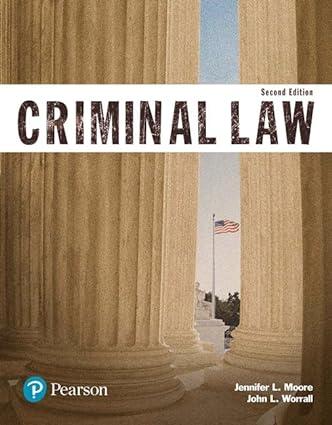In December, 2000, Brian Gauthier, an experienced truck driver, was employed by the defendant, Angelo Todesca Corporation,
Question:
In December, 2000, Brian Gauthier, an experienced truck driver, was employed by the defendant, Angelo Todesca Corporation, a trucking and paving company. At the time, Gauthier was driving a ten-wheel tri-axle dump truck, designated AT–56, for the defendant; he had driven this particular vehicle for approximately one year. The defendant had a written policy, published in its safety manual, requiring all trucks to be equipped with back-up alarms, which sound automatically whenever the vehicle is put in reverse gear, at all times. . . When Gauthier was first assigned to AT–56, the truck had a functioning back-up alarm, but around November, 2000, he realized that the back-up alarm was missing. The defendant’s mechanic determined that the vehicle’s electrical system was working properly: it simply needed a new alarm installed. The mechanics did not have a back-up alarm in stock at the time. Although Gauthier continued to operate the truck without the back-up alarm, he noted its absence each day in a required safety report . . .
On December 1, Gauthier was assigned to haul asphalt from a plant in Rochester to the work site in Centerville, and he made three trips from the plant to Centerville that day. His truck weighed more than 79,000 pounds when carrying a full load of asphalt . . . At one point while Gauthier was backing up, he had to stop to allow a car leaving the mall to pass. When he resumed moving, another driver realized that the victim was in Gauthier’s blind spot and repeatedly blasted his truck’s air horn, but neither the victim nor Gauthier reacted. Other drivers also saw that the victim was in Gauthier’s blind spot, and tried to get Gauthier to stop by shouting and waving their arms, but to no avail: Gauthier’s truck struck the victim, pinning his legs beneath its rear wheels. As soon as Gauthier saw the victim trapped under his rear axle, he pulled the truck forward. The victim was conscious and alert when he was taken to a hospital, but he died as a result of his injuries later that day . . . The jury convicted the corporation of motor vehicle homicide, but found it not guilty of involuntary manslaughter. At sentencing, the defendant was fined $2,500.
. . . [B]efore criminal liability may be imposed on a corporate defendant: “The Commonwealth must prove that the individual for whose conduct it seeks to charge the corporation criminally was placed in a position by the corporation where he had enough power, duty, responsibility and authority to act for and in behalf of the corporation to handle the particular business or operation or project of the corporation in which he was engaged at the time that he committed the criminal act . . . and that he was acting for and in behalf of the corporation in the accomplishment of that particular business or operation or project, and that he committed a criminal act while so acting.” We rejected the argument that corporations can be liable criminally for conduct of employees only if such conduct “was performed, authorized, ratified, adopted or tolerated by” corporate officials or managers.
. . . [T]he essence of the defendant’s arguments deals with the first element of corporate criminal liability: namely, the requirement that an employee committed a criminal offense.
The defendant maintains that a corporation never can be criminally liable for motor vehicle homicide under G.L. c. 90, § 24G (b), as a matter of law because the language of a criminal statute must be construed strictly, and a “corporation” cannot “operate” a vehicle. The Commonwealth, however, argues that corporate liability is necessarily vicarious, and that a corporation can be held accountable for criminal acts committed by its agents, including negligent operation of a motor vehicle causing the death of another, if the elements of corporate criminal liability discussed above are satisfied.
Questions:
1. When is a corporation criminally liable for the actions of its employees in Massachusetts?
2. Is it “fair” to hold a corporation responsible for the actions of its employees? Why or why not?
Step by Step Answer:






